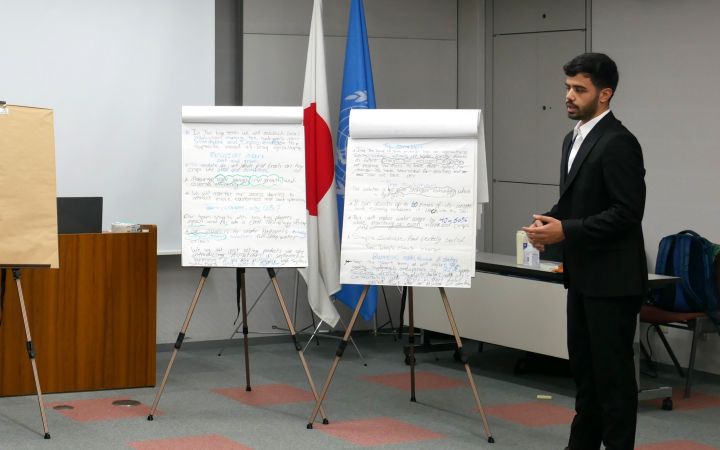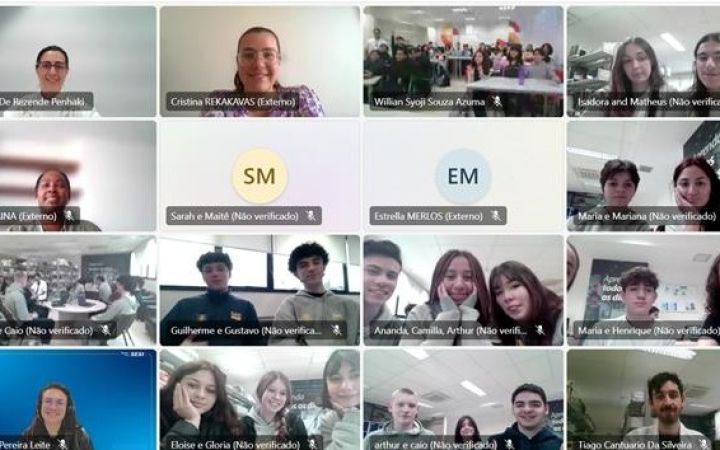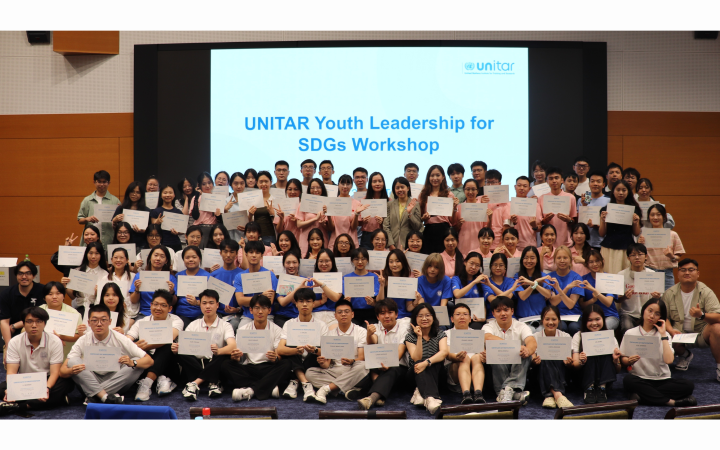Displaying 101 - 110 of 1730
10 September 2025, Geneva, Switzerland – As the world faces pressing challenges to sustainable development, young scientists are at the forefront of innovation and change. To recognize and encourage outstanding contributions, the World Association of Young Scientists (WAYS), the Wenzhou Growth Foundation for Young Scientists, and the UNITAR Affiliated Center – Global SDGs and Leadership Development Center, with the support of the United Nations Institute for Training and Research (UNITAR), have jointly launched the 2025 Young Scientist Sustainable Development Goals Award (2025 Young Scientist SDGs Award).
2 September 2025, Geneva, Switzerland — In times of uncertainty, multilateralism remains the beacon of peace and cooperation, more essential than ever to confront today’s multifaceted diplomatic challenges and support inclusive global decision-making.
2 September 2025, Locarno, Switzerland – The United Nations Institute for Training and Research (UNITAR) co-hosted Diplomacy Day at the 78th Locarno Film Festival together with the Wyss Academy for Nature and the City of Locarno, marking the centenary of the Locarno Treaties.
1 September 2025, Hiroshima, Japan - Mohammed Albadri is a fresh graduate of biomedical engineering from southern Iraq. He wants to make changes to the food insecurity problem of his country, which leads to his vision using hydrogels to save water and make the agriculture system more sustainable. The UNITAR “Entrepreneurship and Innovation: Promoting Food Security and Economic Development in Egypt, Iraq, and Lebanon” training programme helped Mohammed to gain skills to help make his vision come true.
28 August 2025, Hiroshima, Japan – The United Nations Institute for Training and Research (UNITAR) conducted the training and study tour “UNITAR SDGs and Digital Futures: Changemaking Through AI/Digital Storytelling” training programme. in Hiroshima from 25 to 28 August 2025, welcoming 13 youth participants from four Asian countries and Hiroshima Prefecture.
28 August 2025, Curitiba, Brazil - The International Training Centre for Authorities and Leaders in Curitiba (CIFAL Curitiba) jointly with the Escola Sesi de Referência Internacional de Londrina and the Colégio Sesi Internacional successfully concluded the virtual learning session 'Diplomacy in Action-Shaping Global Agreements at COP's'.
25 August 2025, Hiroshima – On 25 August 2025, the United Nations Institute for Training and Research (UNITAR) and SPINGLE Co., Ltd. presented “Paper Crane Recycled Sneakers” to the youth participants of the “UNITAR SDGs and Digital Futures: Changemaking Through AI/Digital Storytelling” training programme, collaborating to share messages of peace to the world.
24 August 2025, Hiroshima, Japan – On 24 August 2025, the completion ceremony for the 2025 UNITAR Hiroshima Youth Ambassador Programme was held in Hiroshima City. A total of 25 high school students from Hiroshima Prefecture presented what they learned about nuclear disarmament and peacebuilding. The programme was run by the United Nations Institute for Training and Research (UNITAR) over two months, beginning in June, with the support of the Hiroshima Prefectural Government and Soroptimist International Hiroshima Chuo and in cooperation with the UNITAR Association.
21 August 2025, Hiroshima, Japan - The United Nations Institute for Training and Research (UNITAR) concluded the Prosperity Unleashed: Empowering Young Innovators - Youth Leadership for SDGs Workshop in Tokyo on 9-11 July. This youth development programme features a three-day workshop, gathered 88 aspiring young leaders from universities across China, providing them with a platform to deepen their understanding of the Sustainable Development Goals (SDGs). The individuals learned how to strengthen leadership capacities, explore how young people can contribute to tracking SDG progress, identify challenges, and propose meaningful actions to achieve the SDGs.
20 Aug 2025, Geneva, Switzerland - The United Nations Institute for Training and Research (UNITAR) and the United Nations Development Programme (UNDP) are relaunching the self-paced Massive Open Online Course (MOOC) on SDG-aligned Budgeting. The course is designed to help governments, parliaments, and stakeholders better integrate the Sustainable Development Goals (SDGs) into national budgeting processes.











